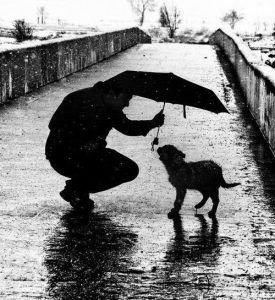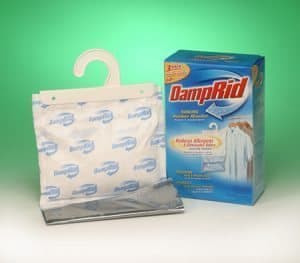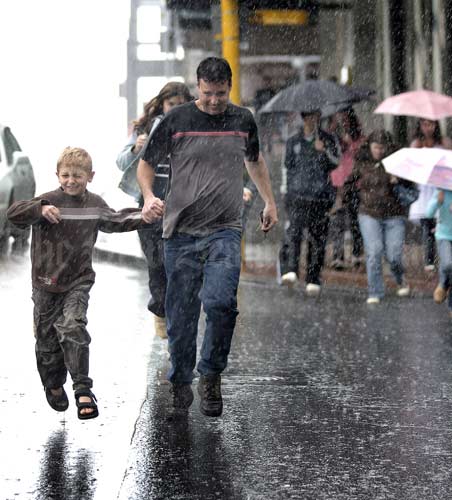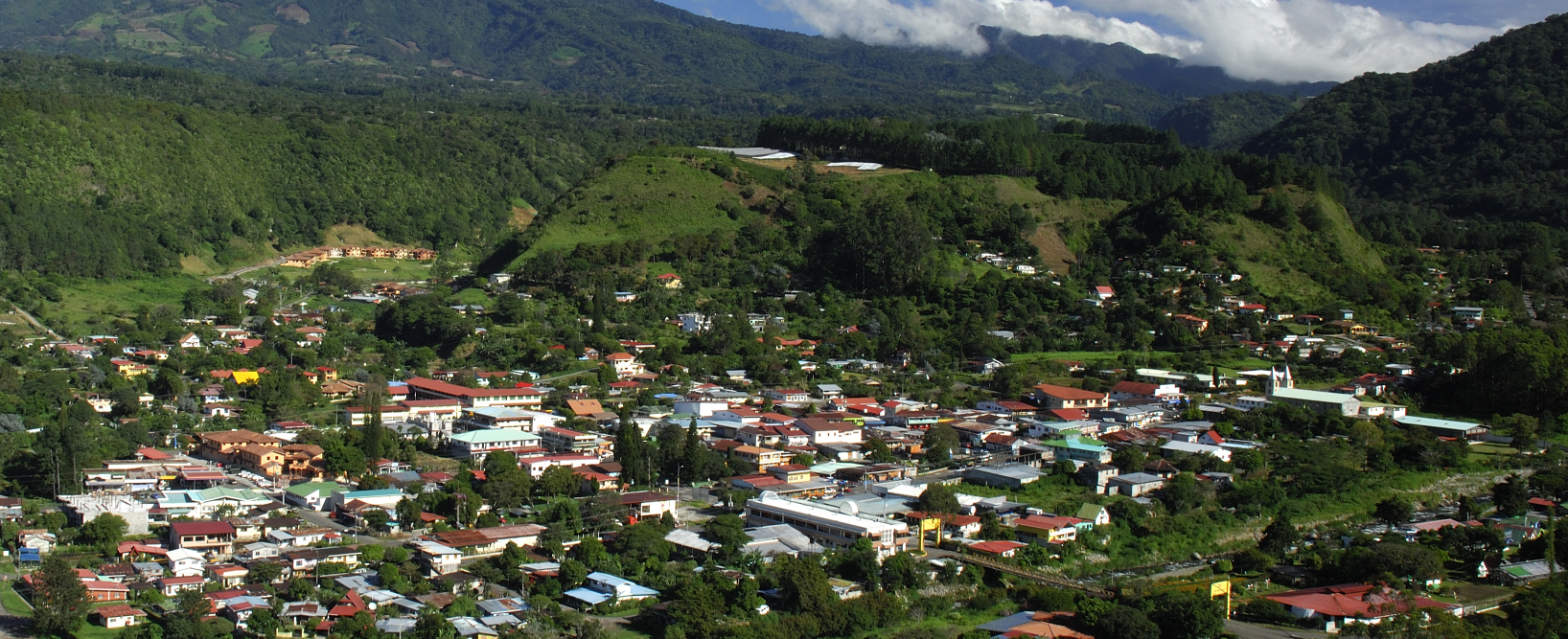There are only two seasons in Panama – the dry season and the rainy season. The temperature doesn’t change much, but the amount of rain and wind do.
The dry season is from mid-December to mid-April. It is more windy during the dry season. By the end of the dry season, most people who live in Panama cannot wait for the rains to start. During the dry season, there is not much rain. At lower elevations, it is especially dry, so grass turns brown. In higher elevations, it’s usually still green all year.
Starting about mid-April, we start getting rain again. Usually, the rainy season starts slow, with a little rain in the late afternoon (about 4 pm) a few times a week. Gradually, as the rainy season progresses, the rains may start a little earlier in the day and/or rain 3-4 times a week.
Rarely does it rain all day. Rarely is there rain in the morning. Panama mornings are absolutely beautiful, with blue skies and birds singing everywhere. The morning air is especially fresh if we had rain the night before.
In late September, we start getting rain more often. It might rain 5-6 times a week in the late afternoon, starting about 4 or 5 pm. The big finale for the rainy season happens in November. In November, it could start raining at about 2 or 3 pm every day and rain for 30-60 minutes or longer. Usually, by mid-November, the rains subside as we start easing back into the dry season.
So, the rainy season is not as bad as you might think. People in Panama learn to plan their day around the possibility of rain in the late afternoon. It’s good for you to see what the rainy season is like in Panama too.
The rainy season is my favorite time of year. Everything is lush and green. Flowers are popping out everywhere. And the sound of the rain is relaxing.

Here are 7 tips that will help you adjust to the rainy season in Panama:
- 1. Always have an umbrella with you. Keep one or two umbrellas in your car. Have an umbrella by the front door of your house. The small compact umbrellas don’t take up much room. If you don’t like using an umbrella, use a poncho. Many “dollar” stores sell ponchos that fold up to 2” x 3” x 1/2”. Keep several ponchos in the glove box of your car too.
- During the rainy season, if we get a huge amount of rain, it could cause a power outage. Not always, but it could happen. So you need to be prepared. Have portable lanterns, flashlights, or candles readily available. A power outage is usually 15 – 30 minutes. But it could be longer. Sometimes the evening rains could cause a tree to fall on the road and take down power lines. If there’s no electricity, there’s no internet service to your house, but you can still use the internet on your cell phone.
- Matches! Always have matches available. You use them to light a candle. But mostly, you use them to start the gas stove so you can still cook if there is a power outage. Most homes in Panama have a gas stove. In addition to your electric coffee pot, you should also have a French Press to make coffee without electricity. I think coffee tastes better made with a French Press.

- In lower elevations, below 2000 feet, you will likely get a mold film on your solid surfaces like countertops or coffee tables UNLESS you have a dehumidifier or a ceiling fan going all the time. You may need to clean these surfaces daily with a Clorox solution mixed with water. We don’t have that problem at higher elevations like Boquete or Volcan.
- Living in a place where I can have my windows open to get fresh air all day is so wonderful. But when the rains start, it is time to close the windows to keep the moisture out of the house. If you have a ceiling fan, turn it on to keep the air circulating.
- Plan your day to get all your errands finished by 2 pm. Go to the bank, pick up mail, meet friends for lunch, then buy groceries so you can head home before the rains start. Statistics prove that driving in the rain is more dangerous everywhere, not just in Panama. There are more auto accidents when it rains. So plan to be off the roads before the rains start. If necessary, get off the road, go to a restaurant, and wait out the rain over dinner.
- Here’s one more: Always schedule morning domestic flights during the rainy season. If it rains in the afternoon, your flight will likely be canceled. Air Panama and Copa, the leading domestic flight operators, cancel or delay flights if it rains. Even if it is dry in one city, the flight could be canceled if it rains in the destination city.
The rainy season is only a problem if you are outside without an umbrella when it starts pouring rain. Getting soaking wet is no fun.
Driving in the rain is also more dangerous. Sometimes, it rains so hard that it is very difficult to see, so it’s better to just pull over until the rain stops or slows down.
Living in Panama will teach you to plan your day around the rain. Try to get all your errands done in the mornings so you can be home before 2 pm.
Everyone I know in Panama prefers the rainy season to the dry season. The rains make everything lush and green.
Come see what the rainy season is like in Panama.
Join us for an all-inclusive 6-day, 7-night Panama Relocation Tour.
During the tours, our bus usually pulls into hotels by 4 pm…before the rains start. And our big comfortable bus has luggage storage under the bus to keep your clothes dry.






